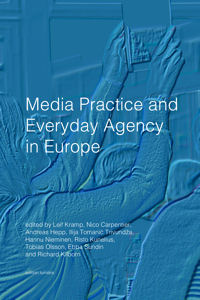
| |||
Media Practice and Everyday Agency in Europe | |||
| Title chapter: | Media Studies without Memory? Institutional, Economic and Legal Issues of Accessing Television Heritage in the Digital Age | ||
| Author: | Leif Kramp | ||
| Keywords: | Television Heritage, Digital Media, Media Access, Copyright | ||
| Abstract: | In their research, media scholars are regularly concerned with audio-visual sources and teaching, be it movies, TV shows, radio, audio recordings or multimedia content on the Internet. Audio-visual media have advanced to the position of primary objects of investigation and theory in media studies. In a media landscape characterised by a huge variety of electronic media, television as a technology, institutional setting and cultural forum (cf. Williams, 2003, Newcomb/Hirsch, 1983) still presents itself as a medium of record, monitoring, framing, priming and commenting on the conditions of increasingly mediatized societies and their social and cultural transformations as well as persistencies. 1 However, in many places, researchers and lecturers who want to work with recordings and documents of television history face considerable problems in accessing the sources. Despite the highly problematic conditions of long-term preservation owing to the susceptibility of the data carriers and to rapidly changing technical standards, researchers struggle with profound obstacles to maintain a hold on archival assets. In contrast to book publications, public records, the fine arts, music or even movies â€" which have their own challenges when it comes to works that may be 'orphaned', but are at least institutionally preserved in archives â€" libraries and museums, television and broadcasting in general have no clearly defined focal points or mandatory rules of preservation and access with respect to archived material. Last but not least, the use and availability of materials â€" including the composition and exploitation of private collections of recordings â€" is mostly restricted on copyright-related grounds. | ||
| >Click here to download full chapter [pdf] | |||
|
The | |||